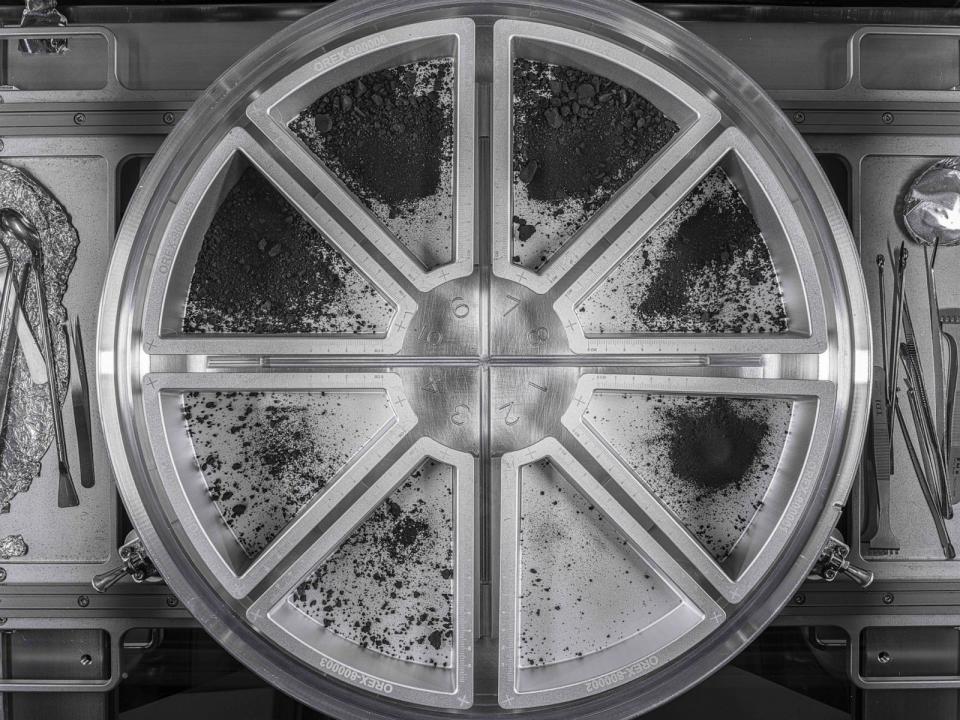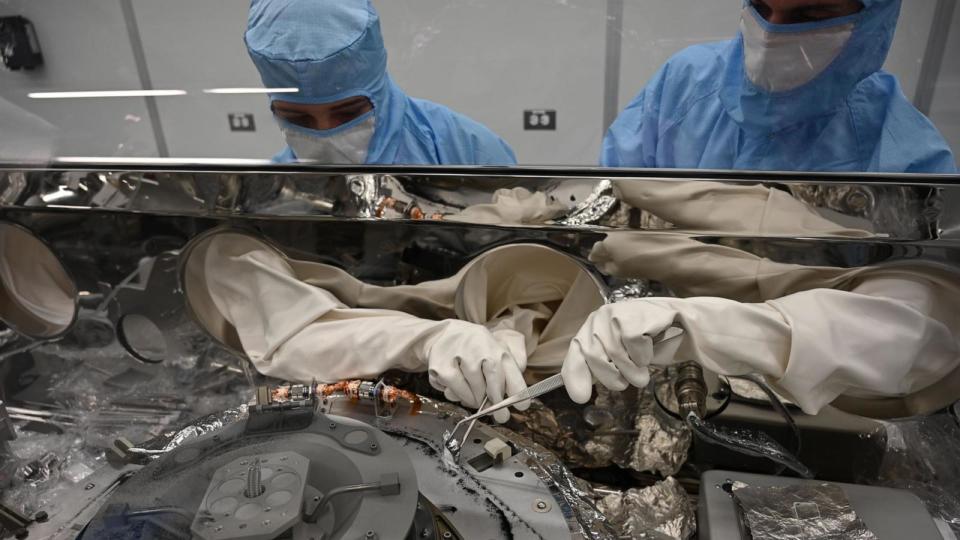'Asteroid hunter' digs deep into massive space object that's set to make close pass to Earth
Scientists have tracked an asteroid the size of New York's Empire State Building to pass by Earth in 2182.
While experts don't think there is a chance that it will make contact with the planet, many scientists have said it is important to study the asteroid and other objects from outer space and prepare for any scenario.
Dante Lauretta, the principal investigator for the NASA OSIRIS-REx mission, which collected samples from the asteroid Bennu located about 200 million miles away, explores these issues in his new book, "The Asteroid Hunter: A Scientist's Journey to the Dawn of our Solar System."

Lauretta spoke with ABC News' Linsey Davis about his book and research.
ABC NEWS LIVE: Just give us a sense of why this is so important to prepare for now when something that's more than a century and a half away.
DANTE LAURETTA: Yeah. Asteroids are interesting for many reasons. The impact hazard is one of them, but it's also a treasure trove of scientific information from the early solar system. The asteroid has a chance of hitting the Earth. It's not 100%. It's actually 0.05%.
MORE: How OSIRIS-REx's capsule could hold keys to 'building blocks of life' on Earth
ABC NEWS LIVE: So relatively low.
LAURETTA: It's relatively low. I'd like to say you'd cross the street with those odds, but it's important to understand this hazard in general and what we might be able to do when an asteroid ultimately is going to collide with the Earth, because it's happened many times before throughout geologic history, and it's the only natural disaster right now we can do something about.
ABC NEWS LIVE: And you were part of a mission back in September that actually gathered a little sample from this asteroid. What were we able to learn about our past or present and future, potentially from that sample?
LAURETTA: Yeah. OSIRIS-REx is a NASA mission that went to this asteroid named Bennu, primarily to collect these samples and bring them back to the Earth. We got that canister opened, and we've been analyzing the material. It's really rich in water in the form of clay minerals and carbon, mostly inorganic compounds. Those are key.
This asteroid is 4.5 billion years old, and we think objects like this may have brought the water that's in our oceans, the air that's in our atmosphere, and maybe even the molecules that led to the origin of life on our planet. This sample looks perfect for answering those questions.
ABC NEWS LIVE: Now, you've talked about how humanity is faced with two really difficult decisions, right? One of them, which I had a question about because it was evacuating a wide swath of the Earth because the asteroid could hit there. How would you even know? If we were to be able to evacuate a wide portion of the Earth how would you be able to pinpoint which area you need to evacuate?
LAURETTA: People of the future, in the years leading up to 2182, would have to be tracking this asteroid very closely. We would need telescopes, maybe even a spacecraft that's there at the object that's transmitting positional information back to the Earth.
And as it gets closer and closer to the planet, we'd be able to predict very accurately where it would ultimately hit.

ABC NEWS LIVE: OK, so that's one option, Option A. Option B would be to send something up that would be able to knock the asteroid off of its current path. Which option do you think is the smart money on?
LAURETTA: We definitely should be tracking this object, and we will continue to do that in the future. And all of the information we collected from our mission will enable that.
So I think that is Option A, because we don't know if it's going to hit the Earth yet or not. So you wouldn't need to develop a deflection mission until you were really confident. The other thing to keep in mind is that we don't know if it's going to hit or not with 100% accuracy, but the people of the year 2135 will because that's when Bennu will fly between the Earth and the moon. And that event will determine its future path.
And it'll be pretty confident whether or not the impact hazard is real at that point.
MORE: Video 'The Asteroid Hunter' unpacks the details of a rare asteroid heading towards Earth
ABC NEWS LIVE Why have you made something that's going to happen not in your lifetime your life's work?
LAURETTA: This is about the science. The big questions that I'm asking, and I think everybody asks themselves at some point is: Where did we come from? And are we alone in the universe?
I'm trying to understand how life got a hold on this planet. And could that have happened on Mars? Could that have happened on Venus? Are there life forms around extrasolar planets?
We don't know how you go from something that is non-living to something that is alive. That's the biggest mystery in science right now. And I think this asteroid and the samples we brought home hold the clues.
'Asteroid hunter' digs deep into massive space object that's set to make close pass to Earth originally appeared on abcnews.go.com


